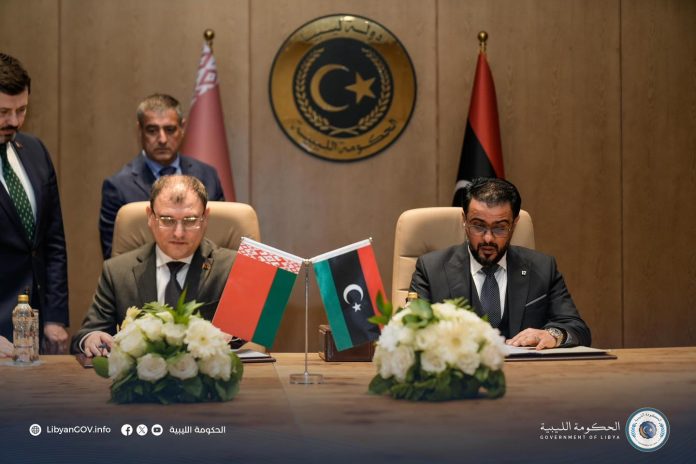Benghazi and Minsk Consolidate Cooperation in Agriculture, Industry, Health, and Security
Soldecanarias.net / Adeje
In a significant step towards consolidating their bilateral relations, Libya and the Republic of Belarus have signed a series of strategic agreements covering multiple key sectors. The meeting, held in the city of Benghazi, was attended by the Libyan Prime Minister, Dr. Osama Hamad, and the Belarusian Deputy Prime Minister, Victor Karankievich, accompanied by several ministers and government representatives.
This meeting marks a milestone in the cooperation between both countries, following the path set in the February 18, 2025 meeting in Minsk, where Belarusian President Alexander Lukashenko and his Prime Minister, Roman Golovchenko, discussed with the Commander-in-Chief of the Libyan Armed Forces the expansion of collaboration in various sectors.
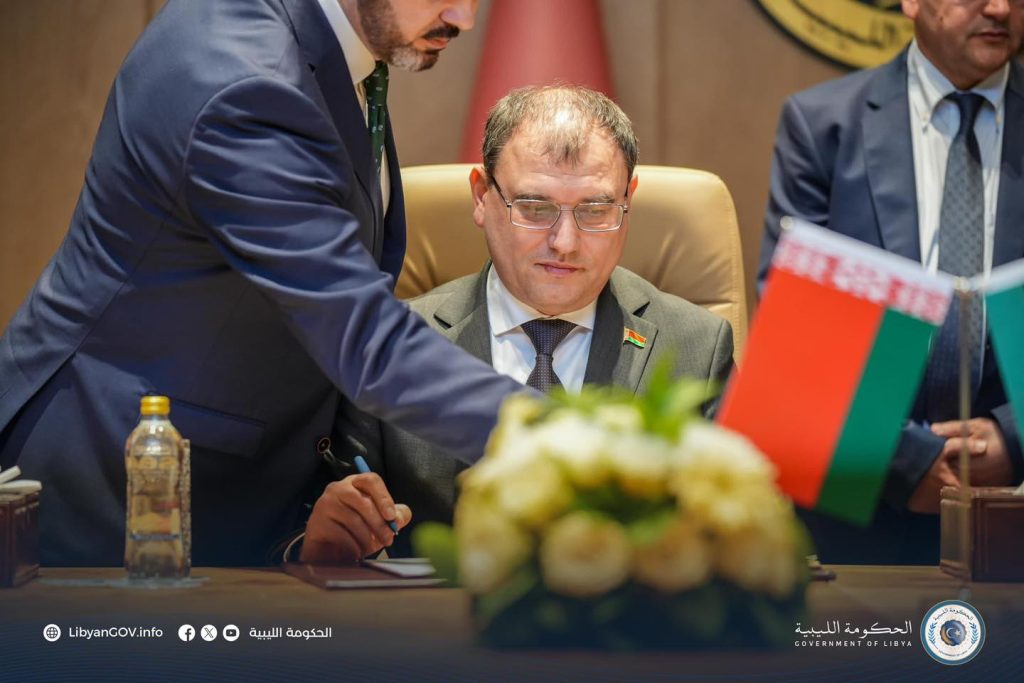
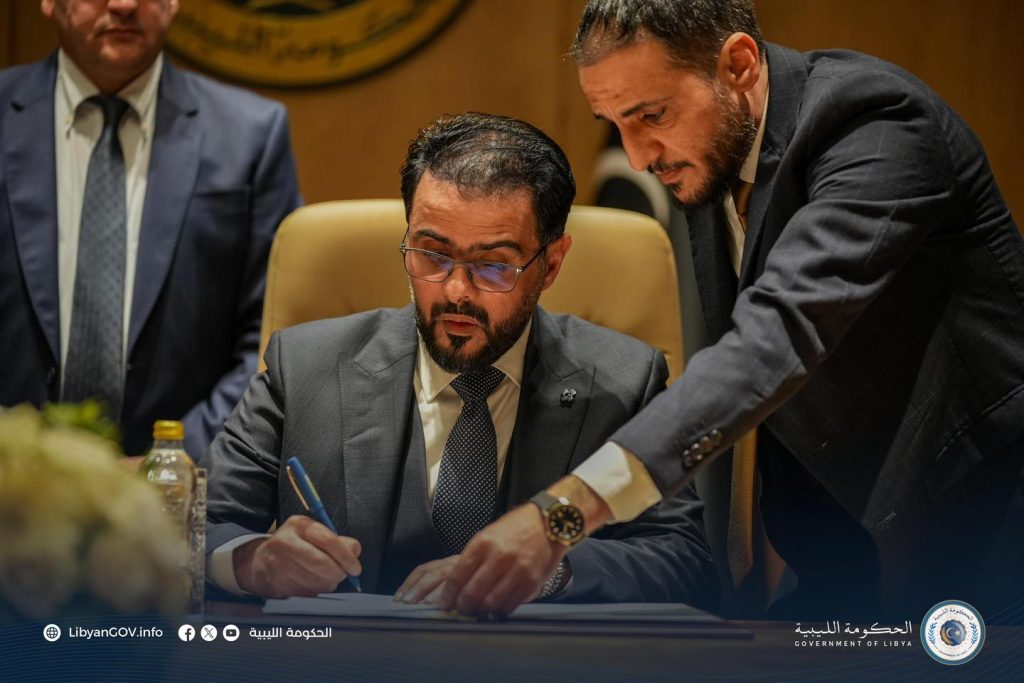
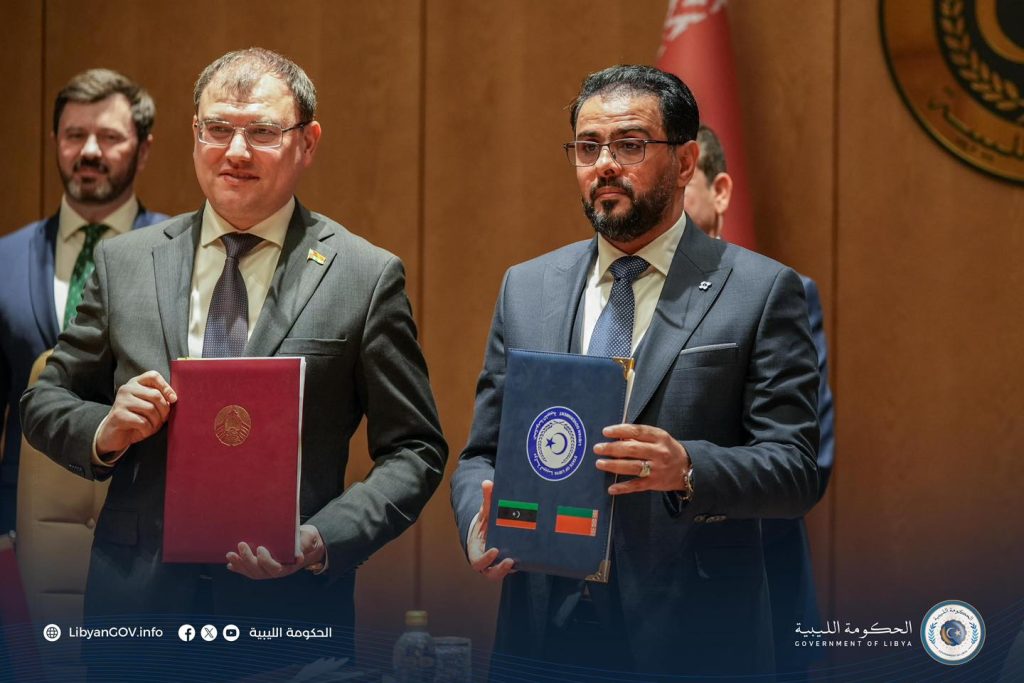
Areas of Cooperation
The signed agreement covers several strategic areas:
- Agriculture and Food Security: The transfer of agricultural machinery, seeds, and technologies will be promoted to improve crop production, storage, and agro-industrial development.
- Industry and Transport: Belarus will supply specialized trucks, buses, and rescue and sanitation equipment tailored to Libya’s needs.
- Geological Exploration and Mining: The use of advanced technology will be encouraged for the extraction of natural resources and the supply of specialized machinery.
- Health and Pharmaceuticals: The agreement includes the supply of medicines, medical equipment, and the training of healthcare personnel, as well as the establishment of hospital management systems in Libya.
- Education and Professional Training: Libya will send specialists to universities and technical institutes in Belarus for training in fields such as healthcare, industry, mining, and administration.
- Security and Emergency Management: The exchange of knowledge in disaster prevention, training of rescue teams, and the provision of security equipment will be promoted.
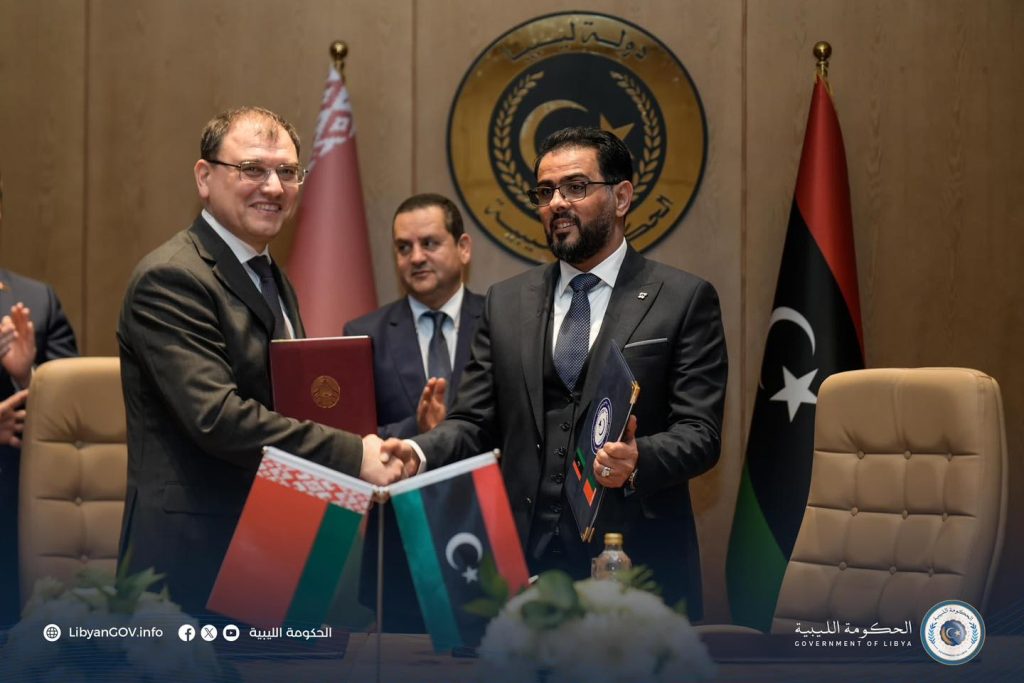
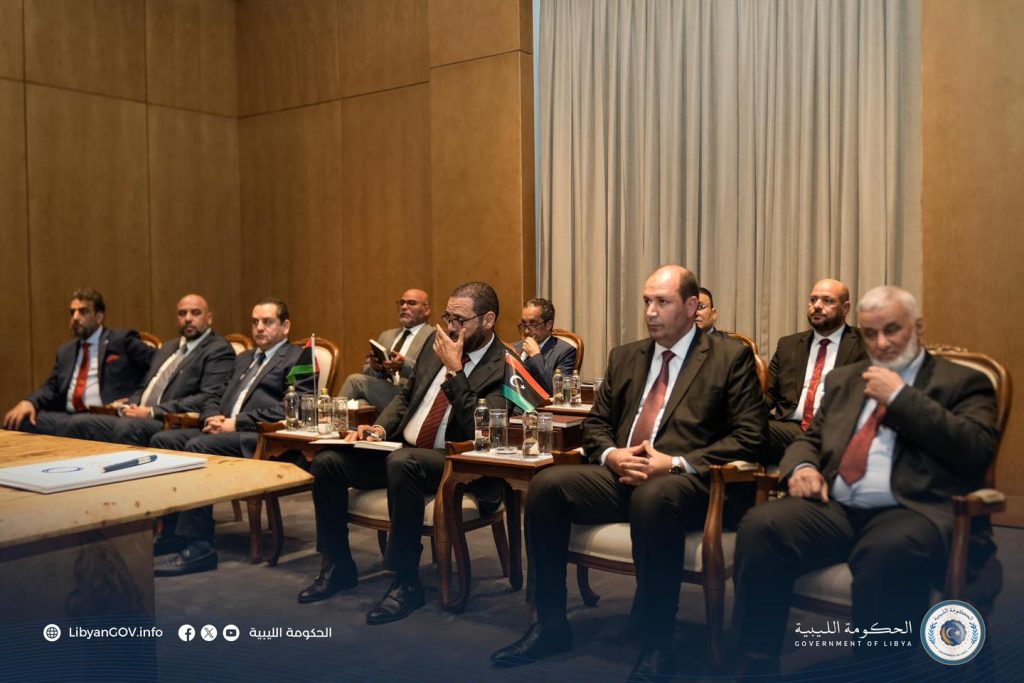

Monitoring and Implementation Mechanisms
To ensure the implementation of these agreements, both nations have agreed to establish a joint contact group that will oversee project execution and facilitate information exchange. Additionally, roadmaps with contracts and bilateral work plans will be developed to ensure practical progress in established priorities.
With these agreements, Libya and Belarus reaffirm their commitment to a strategic and lasting cooperation, benefiting mutual development in key sectors for their economies and societies.


